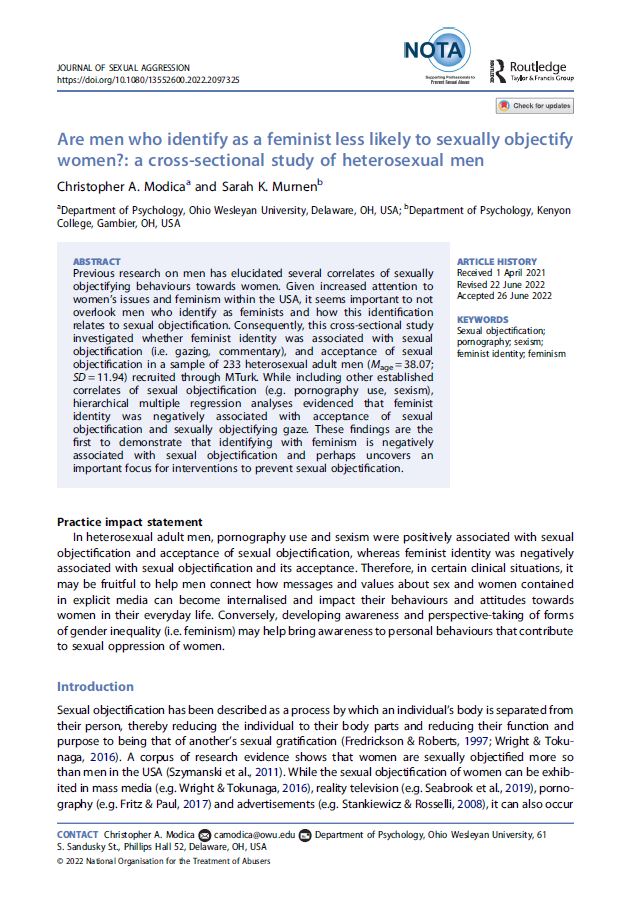Discrimination
Are men who identify as a feminist less likely to sexually objectify women?
 Full Article Title: Are men who identify as a feminist less likely to sexually objectify women?: a cross-sectional study of heterosexual men.
Full Article Title: Are men who identify as a feminist less likely to sexually objectify women?: a cross-sectional study of heterosexual men.
Open Access: No
Abstract
Previous research on men has elucidated several correlates of sexually objectifying behaviours towards women. Given increased attention to women’s issues and feminism within the USA, it seems important to not overlook men who identify as feminists and how this identification relates to sexual objectification. Consequently, this cross-sectional study investigated whether feminist identity was associated with sexual objectification (i.e. gazing, commentary), and acceptance of sexual objectification in a sample of 233 heterosexual adult men (Mage = 38.07; SD = 11.94) recruited through MTurk. While including other established correlates of sexual objectification (e.g. pornography use, sexism), hierarchical multiple regression analyses evidenced that feminist identity was negatively associated with acceptance of sexual objectification and sexually objectifying gaze. These findings are the first to demonstrate that identifying with feminism is negatively associated with sexual objectification and perhaps uncovers an important focus for interventions to prevent sexual objectification.
Relevance
“Internet pornography use was significantly positively correlated with acceptance of sexual objectification and sexually objectifying gaze” whereas “Feminist identity was significantly negatively correlated with the acceptance of sexual objectification and sexually objectifying gaze.” “In heterosexual adult men, pornography use and sexism were positively associated with sexual objectification and acceptance of sexual objectification, whereas feminist identity was negatively associated with sexual objectification and its acceptance. Therefore, in certain clinical situations, it may be fruitful to help men connect how messages and values about sex and women contained in explicit media can become internalised and impact their behaviours and attitudes towards women in their everyday life. Conversely, developing awareness and perspective-taking of forms of gender inequality (i.e. feminism) may help bring awareness to personal behaviours that contribute to sexual oppression of women.”
Citation
Modica, C. A., & Murnen, S. K. (2022). Are men who identify as a feminist less likely to sexually objectify women?: A cross-sectional study of heterosexual men. Journal of Sexual Aggression, July. https://doi.org/10.1080/13552600.2022.2097325

